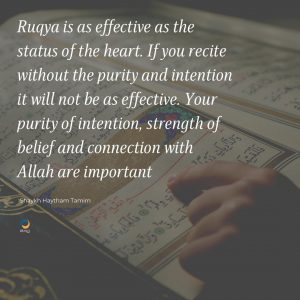How to perform Ruqya for Shifa
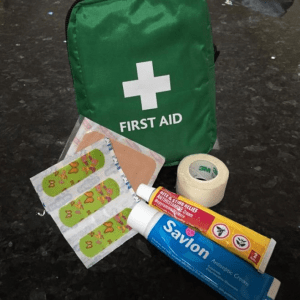
How to perform ruqya
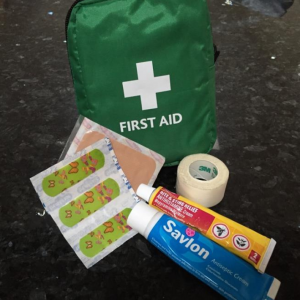
Healing through the Quran
Ruqya is treatment through recitation.
Recite the following an odd number of times i.e. 1,3 or 7 times (7 is preferable).
It is up to you how many times you recite these. Though you may only recite it once, or you can recite them as much as possible, such as 7 times each. However it has been the experience of shuyukh that reciting them all 3 times is a good practice.
- Surat al Fatihah
- Ayatul Kursi
- The last two verses from Surat al Baqarah
- Surat al Iklas, al Falaq and an Nas
- The 6 verses of shifa
- The du’a for cure from the sunnah:
اللَّهُمَّ رَبَّ النَّاسِ، أَذْهِبِ الْبَأْسَ، وَاشْفِ أَنْتَ الشَّافِي، لاَ شِفَاءَ إِلاَّ شِفَاؤُكَ، شِفَاءً لاَ يُغَادِرُ سَقَمًا
Allahumma Raban-nas, adh-hibil-ba’sa, washfi Antash-Shafi, la shifa’a il-la shifa ook, shifa’an la yu-ghadiru saqama
‘O Allah take away the hardship, O Lord of mankind, give shifa, You are the One who cures, there is no cure except Your shifa, a cure that will not leave any sickness.’
Verses of shifa
There are six verses of healing (shifa) in the Qur’an.
The most well-known verse of shifa and also the most powerful is:
‘And when I am ill, it is He who cures me’, (26:80)
wa iza maridtu fahuwa yashfeen
وَإِذَا مَرِضْتُ فَهُوَ يَشْفِينِ
This was the supplication of Prophet Ibrahim (peace be upon him), and should be recited placing one’s hand on the chest.
The 6 ayahs of healing
وَيَشْفِ صُدُورَ قَوْمٍ مُؤْمِنِينَ
wa yashfi sudoora qawmim mu’mineen
And heal the breasts of a believing people (Tawbah 9:14)
وَإِذَا مَرِضْتُ فَهُوَ يَشْفِين
wa idha maridtu fahuwa yashfeen
And when I am ill, it is He who cures me (Shu’ara 26:80)
وَشِفَاءٌ لِمَا فِي الصُّدُورِ وَهُدًى وَرَحْمَةٌ لِلْمُؤْمِنِينَ
wa shifaaa’ul limaa fis-sudoori wa hudan wa rahmatul – lilmu’mineen
And a healing for that which is in your breasts – a guidance and a mercy for the believers (Yunus 10:57)
فِيهِ شِفَاءٌ لِلنَّاسِ
feehi shifaaa’ul linnaas
Wherein is healing for men (Nahl 16:69)
وَنُنَزِّلُ مِنَ الْقُرْآنِ مَا هُوَ شِفَاءٌ وَرَحْمَةٌ لِلْمُؤْمِنِينَ وَلَا يَزِيدُ الظَّالِمِينَ إِلَّا خَسَارًا
wa nunazzilu minal-Quraani maa huwa shifaaa’un wa rahmatul lil mo’mineen
And We send down of the Qur’an that which is a healing and a mercy to those who believe (Israa’ 17:82)
قُلْ هُوَ لِلَّذِينَ آمَنُوا هُدًى وَشِفَاءٌ
qul huwa lillazeena ‘aamanoo hudan wa shifaaa’un
Say: ‘It is for those who believe, a guide and a healing’ (Fussilat 41:44)
Reciting over water
There are studies which show that non-Muslim patients given randomised treatment with water blessed with Qur’an or ordinary water showed a significantly increased rate of healing when treated with Quranic water.
How to perform ruqya
There are different levels of ruqya. Ordinary ruqya is for common physical ailments and protection from ayn (evil eye) / sihr (black magic) / hasad (envy).
- Recite slowly and with purity of intention.
- The person performing ruqyah should place their hand on the one who is suffering, ideally on their head.
- Recite Allah’s verses slowly, with deep faith
- Repeat the verses an odd number of times.
Surah Fatihah – A Gift Like No Other
Reciting Surah Al Fatihah can soothe us – not just spiritually but physically as well. It has the power to protect us from harm as well as to heal us. According to hadith, a new door in heaven opened and an angel descended to earth for the first time to proclaim that Surah Al Fatihah and the end of Surah Al Baqarah were two special lights gifted to the ummah (followers) of Prophet Muhammad (peace be upon him), a gift unlike any verse that has been given to a prophet before. Indeed, the Prophet (peace be upon him) mentioned that ‘Nothing of the Torah, Zabur (Psalms) or Injil (Bible) will match the Fatihah’. Moreover, another hadith suggests that if we recite Surah Al Fatihah and the closing two verses of Surah Al Baqarah we can be granted our du’as for anything during this life or the hereafter.
Prophetic Ruqya
Ruqya is recited over someone who is ill or is troubled and as protection for one’s family and oneself, as the Prophet (peace be on him) used to recite it on his companions, small children and himself. He used to recite the 3 Quls (Surat al Ikhlas, an Nas and al Falaq). Abu Sa’id al Khudri (may Allah be pleased with him) used the Fatihah as well, which was approved by the Prophet (peace be on him).
During the time of the Prophet (peace be upon him) the tribal chief was bitten by either a snake or scorpion and asked the companions of the Prophet (peace be upon him) to treat him. As the tribe had not been on good terms with them, they agreed to make payment for it. So one companion recited Surat al Fatihah, gathering his saliva and spitting it at the bite. The chief was cured and paid with a flock of thirty sheep. The companions sought permission from the Prophet (peace be upon him) for taking payment, and he gave it. His approval confirmed that we can use Surat al Fatihah for healing as well as the acceptability of receiving a gift for it.
Duas for shifa from the Sunnah
وعنها أن النبي صلى الله عليه وسلم الله عليه وسلم الله عليه وسلم كان يعود بعض أهله يمسح بيده اليمني ويقول:
”اللهم رب الناس، أذهب البأس، واشف، أنت الشافي لا شفاء إلا شفاؤك، شفاءً لا يغادر سقماً” ((متفق عليه))
‘Aishah (may Allah be pleased with her) reported: When the Prophet (ﷺ) visited any ailing member of his family, he would touch the sick person with his right hand and would supplicate:
اللهم رب الناس، أذهب البأس، واشف، أنت الشافي لا شفاء إلا شفاؤك، شفاءً لا يغادر سقماً
Allahumma Rabban-nasi, adhhibil-ba’sa, washfi, Antash-Shafi, la shifa’a illa shifa’uka, shifaan la yughadiru saqaman
O Allah! the Rabb of mankind! Remove this disease and cure (him or her)! You are the Great Curer. There is no cure but through You, which leaves behind no disease. [Muslim]
بِسْمِ اللَّهِ الَّذِي لَا يَضُرُّ مَعَ اسْمِهِ شَيْءٌ فِي الْأَرْضِ وَلَا فِي السَّمَاءِ وَهُوَ السَّمِيعُ الْعَلِيمُ
Bismillahil-lazi la yadhurru ma’asmihi syai’un fil ardhi wa la fis-sama’i wa huwas-sami’ul aleem
In the Name of Allah with Whose Name there is protection against every kind of harm in the earth or in heaven, and He is All-Hearing and All-Knowing [Abu Dawood]
اللَّهُمَّ إِنِّي أَسْأَلُكَ الْعَفْوَ وَالْعَافِيَةَ فِي الدُّنْيَا وَالآخِرَةِ
Allahumma inni as’alukal-’afwa wal ‘afiyah fid-dunya wal-akhirah
O Allah, I seek Your forgiveness and my well-being in this world and the Hereafter. [Ibn Majah]
اللَّهُمَّ احْفَظْنِي مِنْ بَينِ يَدَيَّ, وَمِنْ خَلْفِي, وَعَنْ يَمِينِي, وَعَنْ شِمَالِي وَمِنْ فَوْقِي, وَأَعُوذُ بِعَظَمَتِكَ أَن أُْغْتَالَ مِنْ تَحْتِي
Allahummah-fazni min baini yadaiya, wa min khalfi, wa ‘an yameeni, wa ‘an syimali wa min fauqi, wa a’uzu bi’azomatika an ughtala min tahti
O Allah protect me from my front, behind me, from my right and my left, and from above me, and I seek refuge in Your Magnificence from being taken unaware from beneath me. [Ibn Majah]
Abu ‘Abdullah Uthman bin Abul-‘as (may Allah be pleased with him) reported: I complained to the Messenger of Allah (ﷺ) about a pain I had in my body. The Messenger of Allah (ﷺ) said,
“Place your hand where you feel pain and say:
‘Bismillah (In the Name of Allah)’ three times; and then repeat seven times:
بِسْمِ اللهِ , بِسْمِ اللهِ , بِسْمِ اللهِ أَعُوذُ باللهِ وَقُدْرَتِهِ مَنْ شَرِّ مَا أَجِدُ وَأُحَاذِرُ
‘A’udhu bi’izzatillahi wa qudratihi min sharri ma ajidu wa ‘uhadhir
I seek refuge with Allah and with His Power from the pain that afflicts me and that which I apprehend.”‘ [Muslim]
Evidence of using ruqya
Abu Sa’id Al-Khudri (may Allah be pleased with him) narrated:
Some of the companions of the Prophet (ﷺ) came across a tribe amongst the tribes of the Arabs, and that tribe did not entertain them. While they were in that state, the chief of that tribe was bitten by a snake (or stung by a scorpion). They said, (to the companions of the Prophet (ﷺ), “Have you got any medicine with you or anybody who can treat with Ruqya?” The Prophet’s companions said, “You refuse to entertain us, so we will not treat (your chief) unless you pay us for it.” So they agreed to pay them a flock of sheep. One of them (the Prophet’s companions) started reciting Surat al-Fatihah and gathering his saliva and spitting it (at the snake-bite). The patient got cured and his people presented the sheep to them, but they said, “We will not take it unless we ask the Prophet (whether it is lawful).” When they asked him, he smiled and said, “How do you know that Surat al-Fatihah is a Ruqya? Take it (flock of sheep) and assign a share for me.” (Bukhari)
In more recent times, a blacksmith became very ill, and found himself becoming very thin and vomiting blood. A pious man, who was not a scholar, but from the awliya (one whose piety has brought him close to Allah Almighty) visited him. He recited an ayah from Surah Isra:
‘Wa bilhaqqi anzalnahu wa bilhaqqi nazal’:
‘We sent down the Qur’an in truth and in truth has it descended’. (17:105)
As soon as the man departed, the blacksmith started coughing and spat out a piece of metal.
How to make ruqya effective
The impact of the ruqya depends on the vessel carrying it, meaning the purity of the heart and the station of the one who is reciting it. If the person has complete tawakkul (reliance) on Allah Almighty and feels the weight of what he or she recites, that connection with Allah Almighty enables the Qur’an to have an effect and heal us. Ruqya therefore depends on the purity of intention and correct recitation. If you believe the Qur’an will cure you then it can.
Protecting our Children
A child was once brought to the Prophet (peace be upon him) looking pale and yellow. The Prophet (peace be upon him) asked why ruqya had not been made. Therefore, we should make ruqya for our children.
An alternative acceptable method of making ruqya is to recite Qur’an on water and give this to children to drink. To rely on other than Allah Almighty or His words is forbidden and may be tantamount to shirk (polytheism). Examples of this might include wearing an amulet (taweez), especially if it contains any thing other than Allah Almighty’s words i.e. the Qur’an, or praying to graves, in the hope of achieving a cure.
How can we Protect Ourselves from Jinn?
The other type of ruqya is for treating jinn. This is a more complex process, although the same basic principles apply. A special du’a can be downloaded for this purpose from the internet and should be listened to. Specialists in this area are rare and many people are vulnerable to being misdirected to unorthodox practices by unqualified pirs (spiritual guides and healers). We should endeavour to maintain our salah (prayer), adhkar (remembrance), awrad (regular acts of worship) and tilawah (recitation of the Qur’an). Maintaining this connection with Allah and, particularly, with His Name – bismillah, will, insha’Allah, protect us from any harm. We should, therefore, always recite bismillah, especially in the dark, when discarding boiling water in the garden or wash basin, or when discarding bones.
Ayatul Kursi
Regarding protection, the Prophet (peace be upon him) mentioned that whosoever recites Ayat ul Kursi before sleeping will be protected until the morning. He (peace be upon him) also mentioned this regarding the last two verses of Surah Baqarah. It is narrated from Abu Hurairah (may Allah be pleased with him):
‘Allah’s Apostle (peace be upon him) ordered me to guard the Zakat revenue of Ramadan. Then somebody came to me and started stealing of the foodstuff. I caught him and said, ‘I will take you to Allah’s Apostle!’ Then Abu Hurairah described the whole narration and said: ‘That person said to me, ‘Please don’t take me to Allah’s Apostle and I will tell you a few words by which Allah will benefit you. When you go to your bed, recite Ayat Al Kursi, (2.255) for then there will be a guard from Allah who will protect you all night long, and Satan will not be able to come near you till dawn.’ When the Prophet (peace be upon him) heard the story he said to me, ‘He who came to you at night told you the truth although he is a liar; and it was Satan.’ (Bukhari)
Surat al Baqarah
Regarding Surah Al Baqarah, it has been related from Abu Hurairah in Sahih Muslim that the Prophet (peace be upon him) said:
‘Do not turn your houses into graves. Verily, Shaytan does not enter the house where Surat Al Baqarah is recited.’
He (peace be upon him) further explained,
‘Whoever recites Al Baqarah at night in his house, then Shaytan will not enter that house for three nights. Whoever recites it during the day in his house, then Shaytan will not enter that house for three days.’ (Tabarani, Sahih of Ibn Hibban).
It has therefore been recommended to listen to Surah Al Baqarah daily or every other day in one’s home, as this will keep Shaytan away for three days.
The entire Qur’an is healing, as depicted by its name, Ash Shifa. Allah has asserted:
‘And We sent down in the Qur’an such things that have healing and mercy for the believers.’ (17:82).
Othman bin Abi Al’as al-Thaqafi complained to the Prophet (peace be upon him) about a pain in his body he had been suffering from since he converted to Islam.
The Messenger of Allah (peace be upon him) said to him:
Put your hand where the pain is in your body and say: Bismillah three times, and then say seven times:
Aouzu billahi wa qudratihi min sharri ma Ajidu wa ohadhir.
I seek refuge in Allah and His power from what I am suffering from and from what I am anxious of. (Sahih Muslim)
If we truly believe in the Qur’an and its healing, then it will be a shifa for us – for our souls, our bodies, our families and society.
Can you do ruqya only in close proximity or for people far away?
This is a point of discussion among scholars, as there is no clear evidence on this from the sunnah.
Do you need to imagine the person or can you just say their name? It does not matter either way, as the core of ruqya is your intention.
If you want someone who is not nearby to have shifa, you can say the ruqya and also the ayahs of shifa if you want, and ask a Allah Almighty to cure them.
Misconception about ruqya
There is a misconception due to the hadith, in which the Prophet (peace be upon him) mentioned that 70,000 will enter Jannah without hisab (reckoning) and one of their attributes is that they do not use ruqyah.
Ibn ‘Abbaas (may Allah be pleased with him) that the Messenger of Allah (peace be upon him) said:
“Seventy thousand of my ummah will enter Paradise without being brought to account; they are the ones who did not ask for ruqyah or believe in omens or use cautery and they put their trust in their Lord.” (Bukhari and Muslim)
This hadith is referring to non-Shariah ruqyah which was a common practice before Islam. They had their own methods which were not in line with Islam.
There is no contradiction between doing quranic ruqyah and entering Jannah. The Prophet (peace be upon him) used to do ruqyah on himself and on his grandsons Hassan and Husayn, on the children and people around him. The Prophet (peace be upon him) commanded and encouraged believers to do ruqyah and he taught them the Shariah ruqyah.
Transcribed by Saania Bhatti
I would like to donate to Utrujj Foundation to help spread authentic knowledge.
Related Post
How to Receive the Light of Allah in your Heart
General Ruqya Duas:
Recommended Posts
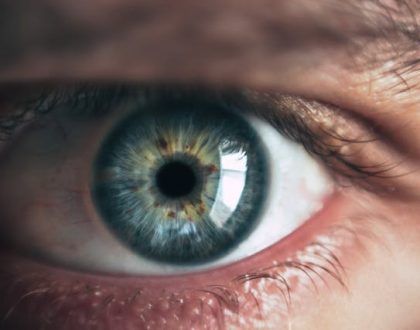
Envy = a lack of trust in Allah – Tarawih Reflections 21
March 30, 2024
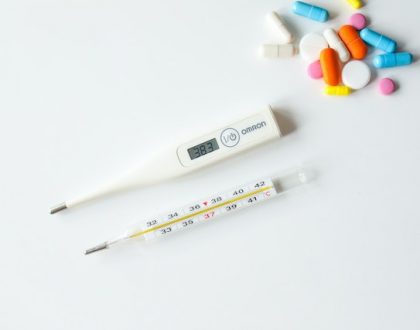
What duas can I recite for shifa – pain relief and cure?
December 14, 2022

